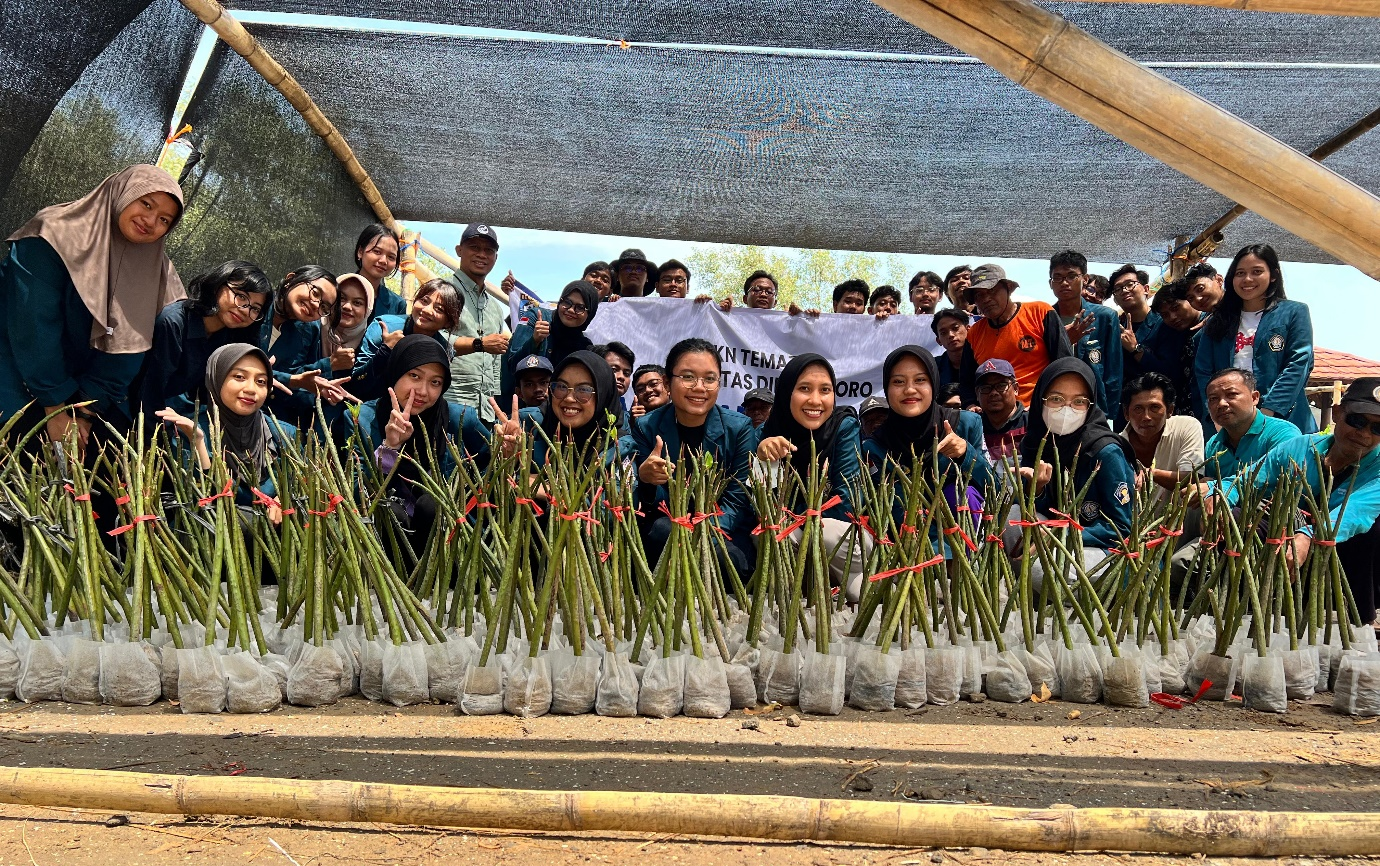Demak, November 17, 2024 – The Community Service Team of UNDIP’s Iptek Bagi Desa Binaan (IDBU) from the Institute for Research and Community Service (LPPM) of Universitas Diponegoro (UNDIP) has introduced an innovative mangrove nursery initiative using environmentally friendly technology in Tambakbulusan Village, Demak Regency, Jawa Tengah. This effort employs eco-friendly polybags as the primary material.
Currently, the use of plastic polybags as planting media in mangrove nurseries is still widespread. However, plastic polybags are non-biodegradable and contribute significantly to environmental damage. Plastic waste takes an extremely long time to decompose, leading to unmanaged pollution that harms the environment, contaminates soil and water, poisons groundwater sources, and poses serious health risks to humans.
Prof. Denny Nugroho Sugianto, the team leader from the Faculty of Fisheries and Marine Sciences UNDIP, explained that one of their breakthroughs is the use of eco-friendly polybags. These biodegradable materials serve as a sustainable alternative to conventional plastic polybags. The use of eco-friendly polybags not only reduces environmental impact but also increases the survival rate of mangrove seedlings, as they can be directly planted without removing the media.
“The preservation and rehabilitation of mangroves are crucial for ensuring a sustainable environment,” said Prof. Denny, who is also part of UNDIP’s SDGs Center and the Disaster Mitigation and Coastal Rehabilitation Study Center (PKMBRP). He emphasized the importance of continuously planting mangroves along coastal areas and preparing long-term seedling availability to support these efforts.
During the initiative, UNDIP collaborated with local community groups, including the village-owned enterprises (BUMDes), to actively participate in enhancing community capacity in the coastal region of Tambakbulusan Village. Community involvement in planting mangrove seedlings is essential, as residents are more familiar with the planting areas. Additionally, their participation fosters a sense of ownership over the mangrove rehabilitation efforts, ultimately contributing to environmental conservation, economic development, and improved social cohesion.
This program underscores UNDIP’s commitment to regional and national coastal area development. According to Prof. Denny, the initiative aligns with UNDIP’s principal scientific pattern, Tropical and Coastal Region Eco-development, and supports the implementation of SDG 13 (Climate Action) and SDG 14 (Life Below Water).
The team also emphasized the importance of raising awareness and empowering coastal communities to preserve natural resources. The efforts include educating residents about the long-term benefits of managing and conserving coastal ecosystems, particularly mangroves, which serve as critical nursery and spawning habitats for marine and fisheries resources. The team included Prof. Diana Nur Afifah from the Faculty of Medicine, Prof. Erni Setyowati, and Dr. Dessy Ariyanti from the Faculty of Engineering. Students from various departments at UNDIP also participated in the thematic SDGs KKN program.
Representatives from the Tambakbulusan Village administration, BUMDes management, and local community groups praised the initiative. They highlighted its role in addressing severe mangrove ecosystem damage in the Glagah Wangi coastal area, a popular beach destination in Demak Regency.
BUMDes officials Ahmad and Musahadi expressed their gratitude, noting that the UNDIP team’s efforts significantly benefit the community by preserving the coastal environment and mangrove ecosystems. They added that the nursery’s seedlings will be partly planted and handed over to BUMDes for management and sustainable utilization. This support is crucial, given the high demand for mangrove seedlings to rehabilitate the northern coastal areas of Jawa Island.
